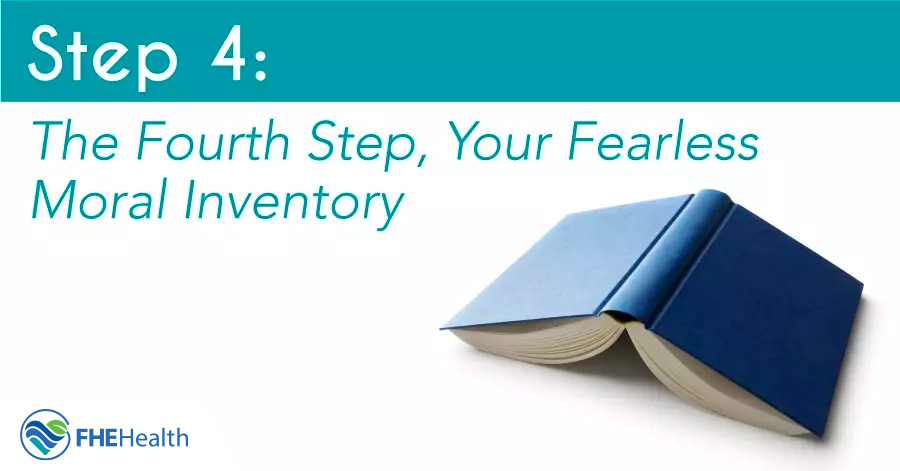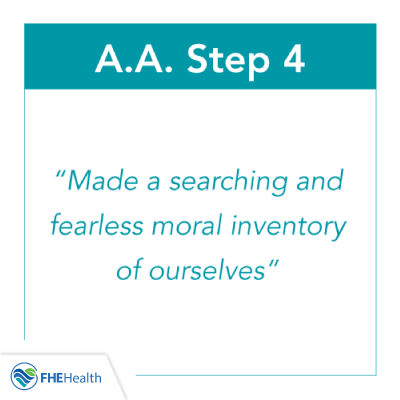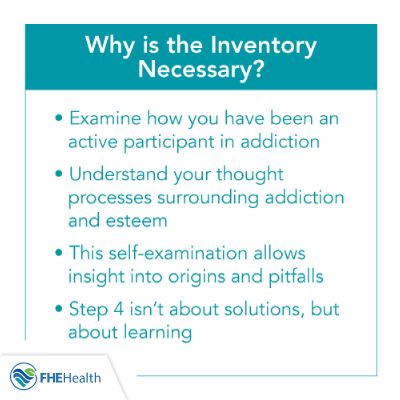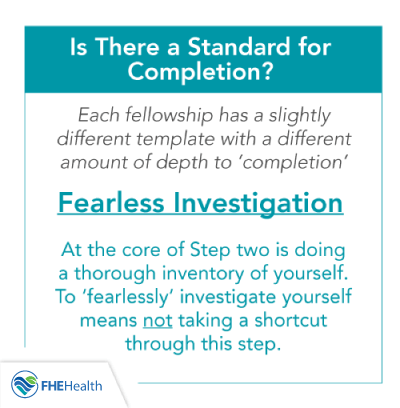
|
|
What is Step 4 in A.A.?
While every step in the 12-step program presents a unique set of challenges, Step Four in Alcoholics Anonymous has gained notoriety as being the “scary” step. This is the step that requires you to take a long, hard, honest look at your character flaws. It can feel overwhelming and frightening but can also serve as a powerful tool you can use to maintain your sobriety.
At this stage in your recovery, you’ve already worked through Steps One through Three. In the process, you’ve accepted that you’re powerless over alcohol or drugs, that God or your personal higher power could help you achieve sanity and that you’ve put your faith in your God or higher power. The idea is that you’ve been sober long enough to honestly and humbly examine how you came to be an addict, what kept you addicted and what needs to change in your life moving forward.
Let’s examine a Step 4 resentment example and give you the tools to pursue your own.
What Does “Make a Searching and Fearless Moral Inventory” Mean?
Working Step Four means examining how your own thoughts, feelings, beliefs and behaviors have made you an active participant in your own addiction. Taking personal responsibility is difficult for anyone, but for addicts, it’s especially tough.
One of the common traits of all addicts is a tendency to see themselves as victims. They’re stuck in a vicious cycle of “stinkin’ thinking” that justifies their substance abuse and addictive behavior. This can mean anything from feeling the need to drink to deal with a stressful workplace to using to numb the pain of a dysfunctional marriage or getting high to cope with memories of an abusive childhood.
Step Four requires you to break down your thoughts and life experiences, looking at critical issues, including feelings of resentment, harm you’ve caused others, your feelings of fear and your sexual conduct. This includes listing all the ways you’ve avoided taking personal responsibility, misdirected your anger, felt ashamed by things you’ve done or failed to do and let fear rule your life.
Creating a comprehensive personal inventory of all the situations, thoughts and feelings that fuel your addiction and perpetuate unhealthy behaviors gives you the perspective you need to take ownership of your problems and stop blaming others.
Once you’ve made that list, you then need to look at each item and ask yourself what your role was in the situation. What did you do to contribute to your addiction? What were you thinking and feeling?
Remember, Step Four isn’t about finding solutions. It’s about self-reflection, honesty and taking responsibility for yourself.









